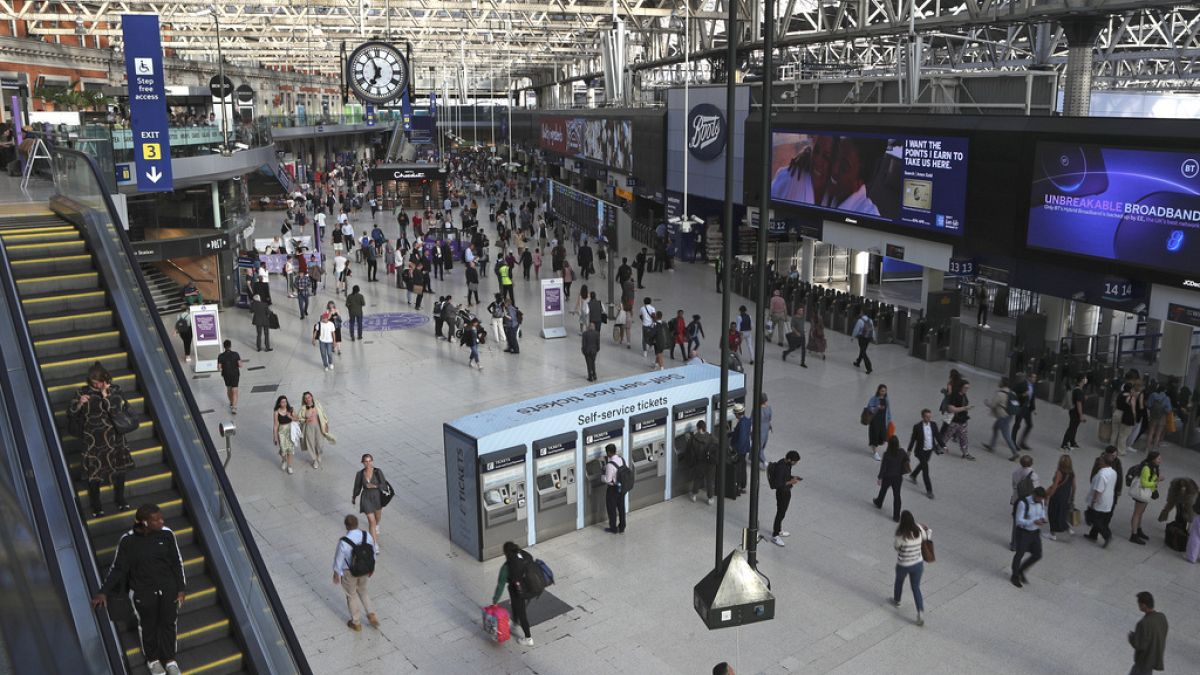In a recent incident, UK transport officials and police are investigating a cyber-security breach that affected public wi-fi networks at major railway stations across the country. Passengers trying to access wi-fi at stations like Manchester Piccadilly, Birmingham New Street, and 11 London terminuses were greeted with a page displaying the message “We love you, Europe” followed by an anti-Islam message listing terror attacks. Network Rail, which manages these stations, quickly shut down the wi-fi service to prevent any data collection from passengers.
Network Rail has confirmed that British Transport Police are actively investigating the incident. The wi-fi service at these stations is provided by a third party, and it has been suspended while the investigation takes place. This incident comes on the heels of a more serious cyberattack in early September on Transport for London, which operates the capital’s bus, subway, and suburban train system. The attack led to the exposure of customer names, contact details, and potentially bank account information, prompting an investigation by the National Crime Agency.
After the attack on Transport for London, a 17-year-old suspect was arrested, questioned, and released on bail without being charged. However, the repercussions of the cyberattack continued to affect the transit company’s ability to provide certain online services such as refunds and real-time transit information. The incident at the railway stations highlights the vulnerability of public Wi-Fi networks to cyber threats and the importance of ensuring robust security measures to protect passenger data and prevent such breaches in the future.
As the investigation into the cyber incident at the railway stations unfolds, authorities will be looking to identify the source of the attack and implement measures to prevent similar incidents from occurring in the future. The disruption caused by the cyberattack underscores the critical role of secure networks in ensuring the smooth operation of transportation services. By addressing vulnerabilities in public Wi-Fi networks and enhancing security protocols, transport officials can better safeguard passenger data and uphold the integrity of their services.
Moving forward, it is crucial for transport organizations to prioritize cybersecurity and invest in advanced technologies to protect against cyber threats. Collaborating with law enforcement agencies and cybersecurity experts can help identify potential weaknesses in network infrastructure and develop effective strategies to mitigate risks. By staying vigilant and proactive in countering cyber threats, transport officials can enhance the resilience of their operations and maintain the trust of passengers who rely on their services for daily travel needs.
In conclusion, the cyber incident at UK railway stations serves as a stark reminder of the evolving threat landscape facing transportation networks. Ensuring the security of public Wi-Fi networks and safeguarding passenger data must be top priorities for transport organizations to prevent potential disruptions and protect the integrity of their services. By strengthening cybersecurity measures and fostering collaboration with relevant stakeholders, transport officials can enhance the resilience of their operations and uphold the trust of passengers in an increasingly interconnected digital world.











